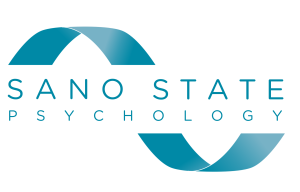Frequently Asked Questions: Neurofeedback Therapy
Neurofeedback (NF) therapy is a form of biofeedback and improves self-regulation. Working with brainwaves (i.e., electrical brain activity; Electroencephalogram (EEG)), NF therapy helps the brain learn to function more efficiently. Brainwaves can be observed in action from moment to moment and then feedback is provided; this feedback communicates to the brain, inhibiting unwanted patterns and rewarding more desirable change.
A comfortable and relaxed environment, where you will be listening to tones and music and/or watching videos.
Several sensors are placed on the head and earlobes and held on by a thick conductive paste. The electrical signals are measured (amplified and sent to the computer to be processed) and then feedback is provided via video or auditory cues.
The brain makes its own changes as a result of this feedback. No electricity is put into the brain, the sensors just pick up the electrical signals like a microphone picks up sound. When the brain is hitting its desired target, feedback is provided.
Appointment times vary depending on the client’s comfort levels. Typically, adult sessions are 1-2 hours and children’s sessions are 30 minutes to an hour.
A neurofeedback practitioner will monitor your training during the session, usually outside of your room, but when working with children, sometimes the practitioner may stay in the room. You may see or hear pauses at certain points during the session and that is simply because we are switching between different protocols.
The protocols are created by the psychologist and are guided by an initial intake interview and brain mapping session and tailored to each individual person.
In most cases, there are no adverse effects of training, provided you are well supervised by a professional.
There can, however, be short-lived effects after sessions. For example, some people may feel a bit ‘revved up’ and it may be difficult to fall asleep on the night of the session. Alternatively, some clients feel very tired or fatigued after a session. Occasionally, clients may have a minor headache. This typically goes away within the day or by the following day.
Many Neurofeedback studies have been done and no lasting adverse effects have been reported. Since neurofeedback therapy is a form of learning, it takes a lot of repetition to result in neuroplastic change. This applies to the negative effects as well; as long as we don’t keep repeating a way of training that results in adverse effects, said effects will fade. This is why we ask questions every session (and modify protocols, if needed) to make sure our protocols are still on target and not causing any hardships.
You can observe and report back on what you are feeling and experiencing. Everything is important and it is all relevant. Other than that, general factors that support brain health are encouraged including:
- Eating a balanced diet
- Drinking lots of water
- Getting enough sleep
- Exercising (moving your body) regularly
- Avoiding excessive screen time
- Limiting alcohol
- Limiting Caffeine (**applies only to the brain mapping)
- Use our Neurofeedback Companion (provided at intake digitally or available for purchase for $10.00 at our clinics
The most important thing here is to be consistent. If this is your first round of Neurofeedback Therapy training, we recommend a minimum of 20 hours. For optimal results, we encourage you to book 2-3 sessions per week (at 1-2 hours per session) and continue that way until 20 hours are finished. After 20 hours are complete, we find the brain is better prepared to receive less feedback and sessions can be a little more spaced out, if desired and if continuing.
Unfortunately, there is no simple way to predict how many sessions it will take to attain a specific goal. We ask our clients to commit to a minimum of 20 hours. There can be a correlation between the severity of the problem and the length of time required. Initial improvements may be noticed within the first 10 sessions. Long-term change and improvement can typically occur within 20 hours for less severe or complex problems, while more severe or complex issues can take longer.
No, you do not have to stop the medication to do a brain map or Neurofeedback Therapy sessions. After an initial period of NF Therapy and as training progresses, you may start feeling more sensitive to your medication dose or overly medicated. Thus, it may be possible to reduce a medication dose or eliminate medication. However, that is a decision you must make together with the prescribing medical professional in order to safely and appropriately make any changes to your medication. We are happy to discuss this with your doctor, if you would like.
You can look at a comprehensive list of research articles looking at Neurofeedback therapy here:
1. Initial Information Session (up to 45 minutes) – Offered free of charge
2. Intake Assessment (interview, brain map, questionnaires, interpretation, and review of results) – $350.00
3. NF Therapy Treatment – $235 per hour
4. Post-Assessment (second brain map and review of results) - Offered free of charge
Some or all fees may be covered by insurance and we do offer some direct billing.
If finances are a concern, please speak with us so we can discuss how to support you. Sliding scale fee options may be available.
We are committed to working with individuals to make treatment as accessible as possible. Please come in and learn more!
Sound Helpful?
We're here to help you become
the best version of you.
Click the button to get started!
